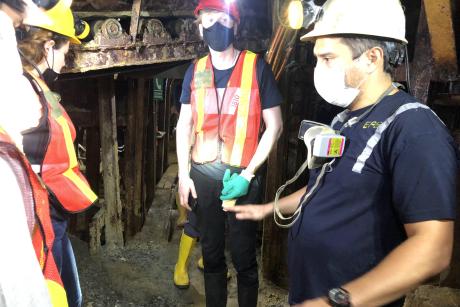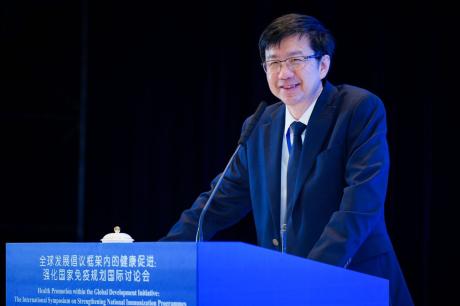
eWaste heap from discarded laptop parts
Published December 30, 2019, last updated on September 8, 2020 under Voices of DGHI
As a master’s degree student focusing on environmental health and toxicology, I am passionate about environmental pollution management, especially how exposure to environmental contaminants can adversely affect human health. However, before this past summer, I never had any firsthand experience working with people who are affected by contamination. That changed when I participated in a Duke Bass Connections project that gave me the opportunity to go to China to conduct my first field research. I did not expect the experience to be so challenging—and so rewarding.
Given the complicated environmental regulations in China, our team anticipated that it would be difficult to have a well-designed plan before we landed in the community—Taizhou, in Zhejiang Province, China—where our project was based. Our goal was to study the effects of environmental contamination on people who live near sites where electronics are disposed (sometimes called e-waste) and understand the current regulation and public awareness regarding e-waste. Rather than take environmental samples, we planned to conduct a social science study, which required a lot of communication and close work with the local community. There were many challenges that we did not anticipate, and we had to come up with solutions on the spot.
First of all, we learned that building up connections with local organizations is crucial. The advantage of having a local connection is that the people and staff in the organization are much more knowledgeable about the community and can offer connections to local resources through their networks. We reached out to scholars and researchers at Duke Kunshan University to get information to prepare for the fieldwork that we were about to do. We also connected with another university hospital that has had frequent partnerships with the Duke School of Medicine. These organizations provided many tips about conducting a health study, navigating in the cities and research support.

An abandoned factory in Taizhou, China....
Second, we anticipated that the language used in our survey should be as understandable as possible. After I translated the English version of the survey into Chinese, I asked my teammate, who was fluent in Chinese, to proofread it to make sure that it was understandable for our audience. Even though we tried our best to switch technical terms to common language, we still encountered difficulty when conducting the survey.
It turned out that many local residents who were exposed to electronic waste did not even know the term “electronic waste.” They called it a different name, “foreign trash.” We soon updated our survey and changed our format from letting people fill out the survey by themselves to explaining questions and recording their oral answers. It was a good reminder that knowing your audience is important, but not enough; being able to adapt to the situations and unexpected issues you encounter in the field is even more crucial.
A third critical lesson of my field research is to appreciate that the topic of study might be sensitive to a local community. Many times, as scholars who study a topic from afar, we can easily overlook the temporal and spatial sensitivity of an issue to the people who are most affected by it. In order to gain the most honest opinions from the population, we need to properly gauge possible reactions of the residents and disclose any information we can about the study in advance to avoid miscommunication and mistrust.
My first fieldwork was full of surprises and challenges. However, these unexpected moments brought me renewed perspectives on how to conduct social studies in another country. I thought that careful planning and preparation would be enough. But after this experience, I realized that having a plan does not always mean that we will be able to anticipate everything we encounter on a research trip. It was more important to have the ability to adapt to the new situations in an unknown environment, and have a team to brainstorm ideas.


